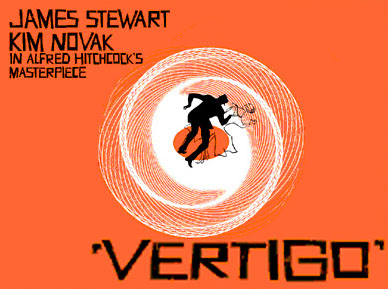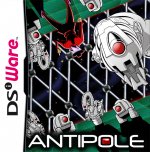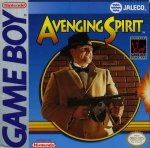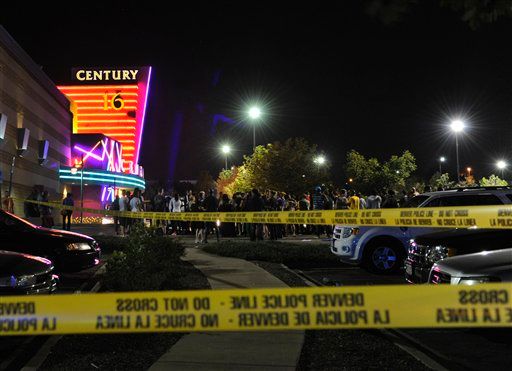NOTE: This is a story that I wrote last year for Machine of Death. Don’t bother looking for it; they rejected it. Regardless, I thought it made for a pretty worthwhile writing exercise, and since it’s going nowhere else it might as well go here. There were certain guidelines, such as: the story must include a machine of death, the title of that story must be the prediction that your protagonist receives from that machine, and the prediction must come true. Enjoy. Or don’t. It’s up to you.

Cold and Despondent in an Empty Room
–Philip J Reed
The man didn’t know what he expected, really, when he showed up to have the exact circumstances of his death predicted, printed, stamped and certified. But one thing he never, in a thousand years, would have expected was that it would turn out to be a very good career move.
Of course he knew he was going to die. Everybody was going to die. That was the point of being alive…at least as far as he could tell. But knowing it so conclusively, so specifically…it was different. It made everything feel different.
“Snoopy or Cookie Monster?” the technician asked him blandly, digging through a crate at his feet.
“Snoopy,” answered the man, rubbing his arm where the needle had been. The technician handed him the bandage, and he applied it himself. The bandage seemed like a formality. Given the circumstances, it only could be.
* * *
His wife climbed into bed beside him. She had come home early. It wasn’t even dark yet. He pulled the shades and got into bed.
“Well?” she asked him softly, nuzzling his shoulder.
He pretended to be asleep.
* * *
The slip of paper read COLD AND DESPONDENT IN AN EMPTY ROOM. He didn’t ask for clarification, but the technician must have been asked for clarification a lot because he immediately offered, helpfully, “Suicide.”
“Suicide?” the man asked.
“It doesn’t say suicide,” the technician said. “But I think it’s pretty clear.”
“You think?”
The technician shrugged. “There’s counseling in the next room,” he said. “You get fifteen minutes, and then I think they charge for any more. But get there now because there’s always a line.”
“I’m not suicidal,” the man said. “It doesn’t even say suicide.”
The technician was preparing the machine for the next client. It was a fairly involved process that involved not only the replacement of syringes (for superfluous hygiene reasons) but also a complete systems check and a full baseline recalibration with a wide range of standards (from “LONG AND FRUITFUL LIFE WITH ULTIMATE TERMINATION IN THE SOFT ARMS OF WINTER” all the way down to “DOG ATTACK IN PARKING LOT”), and then a confirmation of the accuracy of that recalibration by a second, higher-ranking technician.
This higher-ranking technician was already approaching. The man still clutched the short piece of paper that he still needed to have certified by the clerk in the lobby as though he had pulled it from the world’s cruelest fortune cookie.
“Larry,” the first technician said without looking up. “Suicide?”
The higher-ranking technician pulled the paper from the man’s hand, glanced over it briefly, and handed it back. “Who knows.”
“Probably suicide though?”
“Does it matter?” the higher ranking technician asked. “Let’s go with this; we’ve got a tight schedule.”
The man was guided by a woman in white into the lobby, where the clerk recorded and made official the known circumstances of his eventual death.
* * *
These death tests were mandatory, but, for now, they were confined to a relatively small test group. It wasn’t that the machine’s reliability was in question; that had already been established beyond the shadow of any doubt when the inventor of the machine tested it on himself, learned he would die in under an hour’s time in a collapsing laboratory, and relocated in a panic to a much sturdier lab than his own which was then demolished by a wrecking crew who showed up to the wrong address.
The man had been chosen randomly, the letter said.
Very few people were chosen, the letter said.
Very few people were chosen, the letter said, not because the machine was being tested, but because civilization’s ability to cope with the foreknowledge of its own demise was being tested.
The man was a test subject. He was neither willing nor unwilling to be a test subject. He was going to die, he knew, whether he was a test subject or not.
The only question was how.
And it was a question the higher-ranking technician answered without even realizing it.
“Does it matter?”
The man thought about that. Instead of sleeping, he thought about that.
* * *
The man left the next morning before his wife woke up, and took the bus to work. The digital readout on the machine told him he had 59 days left to live, and while he knew that going to work should have felt to him like a poor use of what little time remained, there wasn’t really anything that felt to him like a much better use.
Did it matter? A few days ago, maybe. But not now. Of course it didn’t matter. It didn’t matter if he skipped breakfast. It didn’t matter if he never listened to another record in his life. It didn’t matter because in 59 days, it couldn’t matter.
He was a telemarketer. He was paid a salary too small to support even himself and his wife, let alone the family they had occasionally wanted, to call strangers on the telephone and try to make them buy insurance that he wasn’t even sure existed. He never met any of his customers and his phone did not accept incoming calls. He spoke to everybody once, and then never again. He either made the sale, or he didn’t.
You had one shot at things, and then you crossed the name off your list — whatever the answer — and moved on to the next. One of his coworkers, who was also named Larry, referred to this technique as “slash and burn.”
Larry was not there when the man arrived to work. Nobody was there, except for the cleaning woman, who shuffled from cubicle to cubicle looking for something to clean, hoping both that she’d find something, and that she wouldn’t. She did not try to make eye contact with the man, which he appreciated.
He sat down at his desk, put on his headset, buried his face in his hands, and spoke, one by one, to the strangers his computers called for him.
His coworkers showed up two hours later, and he did not lift his head.
* * *
“Hey,” his wife said.
“I’m too tired,” the man told her.
“Can we talk for a little bit before bed?”
“I’m too tired to talk.”
“Can you just tell me what the machine said?”
“I’m too tired to talk about what the machine said.”
Besides, the man knew, it didn’t matter what the machine said.
It didn’t matter what the machine didn’t say either.
It didn’t matter.
* * *
In the morning he showed up to the office even earlier. It allowed him to make another 20 phone calls than he had the day before. He was supposed to read to his customers from a script, but he started deviating from the text without realizing it.
His mind was nowhere. There was nothing he could think about. He couldn’t think about providing for his wife, because now he never could. He had taken this low-paying job because it was offered to him, and he assumed he would eventually move up. Now that could not happen.
He thought he would make friends who had connections somewhere. Now that could not happen.
He thought he would impress somebody eventually, and that sometime, somewhere, a door would swing open, and he could walk through it and find for himself and for his wife and for the family they now could never have a richer and brighter and better future in which he was — if not somebody — at least not nobody.
He thought he might find something. He thought there might be something to find. He thought that maybe, if he tried, if he lived his life and loved his wife and cared and worked and saved, that he might actually accomplish something.
Now that could not happen. And what was worse, it didn’t matter how he lived. It was too late. He might as well have been a criminal. The machine did not only confirm that his life would be short; it confirmed that whatever time he spent alive had to be meaningless.
He deviated from the script without realizing it. His eyes still glossed over the laminated page before him, but he was saying something different than he had said to customers before. He was saying things that they were listening to.
They were agreeing to sales. When they agreed to sales, the computer transferred them to somebody who would take down their billing information, and then they were gone.
Or, to them, he was gone.
* * *
By the end of the week, his wife resorted to physically cornering him. “You have to deal with this,” she told him.
“It doesn’t matter,” he said.
“Tell me what it said.”
“I’m too tired to talk.”
“Have you been eating?” she asked him. “You haven’t been eating.”
“No,” the man said. “I haven’t been eating.”
At least, he did not think he’d been eating. Why would he have been eating? What difference would that have made?
“You’re not going through this alone,” she said to him.
He held his eyes closed. He left when she was asleep.
* * *
“I’m not suicidal,” the man said. “It doesn’t even say suicide.”
“It gets flowery sometimes,” the technician told him, readying the machine for its next victim. “Me and my brother were in the second batch, last year. It came right out and told me I’ve got nothing to worry about until my trip to Greece, which, the way they pay me, isn’t going to happen for a hell of a long time. But it told my brother that ‘the sullen clap of Heaven’s malaise would steal his hair and life.’ Two weeks later, bam, lightning strike.”
The man stood silent. Whatever the answer was, he knew already that it was irrelevant. The machine either meant that he would commit suicide, or it didn’t. Either way, it didn’t matter.
“I don’t know,” the technician continued, at least partially to himself. “Some of them, it’s just, okay, here’s how. And other’s it’s like it’s channeling Shakespeare or some shit.”
It was either channeling Shakespeare, or some shit.
Either way, it didn’t matter.
* * *
Larry, the man’s coworker, stood beside him while he was on the phone. When the call was finished, Larry pulled the headset off the man and said, “Are you coming out tonight?”
“No,” the man said. And then, “I need to make another phone call.”
Larry said, “Don’t you ever go home?”
“Yes,” the man said sadly, realizing at once that, maybe, he didn’t actually have to.
“What happened?” Larry asked him. “You don’t come out anymore. It’s just a quick drink. You can’t turn into a hermit.”
The man was spared from having to account for his demeanor, however, by his boss, who also appeared in his cubicle and said that he wanted to speak with him for a moment. Larry, whose idea of job security was to evade the manager as often as possible, disappeared for the night.
His boss wanted to speak to him because the man’s sales numbers were extraordinarily high that week.
He said things like, “I don’t know what you’re doing, but keep doing it,” and “What we really need is a whole lot more men like you.”
The man wasn’t sure exactly what he said, because he wasn’t exactly listening. The man stopped exactly listening when he realized that it could no longer have possibly mattered if he listened at all.
* * *
When his wife left him he watched her go, but he felt very little. He didn’t regret her leaving, because he couldn’t blame her for leaving. He didn’t regret consulting the machine, because it hadn’t been his decision to regret, and also because it wasn’t the machine’s fault that nothing he said or did could possibly matter.
He knew that he could keep her — for about a month and a half anyway — if he could only tell her what the machine had said. He knew that she would help him try to make sense of it. He knew that she would stay with him, and comfort him, and help him come to terms with what he knew he could never come to terms with alone. He knew that he could spend every one of his remaining nights in bed with her, feeling her close to him, holding her, being loved by her, and needing her, if only he would speak up and tell her what it was that was pulling the man away from himself.
But he also knew that none of that mattered.
And so she left, and he watched her go, and at some point he either fell asleep or passed out, and before the night was even half over he returned to work, plugged in his headset, and let the computer find another sleepless soul, somewhere, alone and cold in their own empty rooms, the ghosts of optimisms past lining their walls or garage floors, in homes with sputtering heaters and understocked cupboards, their pets blind with cataracts and bathroom sinks adorned with hairbrushes they couldn’t bring themselves to throw away, with yellowed newspapers from better days and a drawer full of loose photographs, a hole in the wall that would never be repaired or a broken window half-heartedly concealed with wet cardboard, a painting never hung or a Christmas gift never delivered, and an overnight bag, empty, still with its original price tag, and dull knives and a broken stove, carpeting leading upstairs to a series of rooms gone unused for years, a Ping-Pong table in the back yard sagging from the rain, the musky smell of thick dust and expired store-bought tomato sauce, and unheard echoes of years-old conversation between people who would not — could not — exist anymore, the imagined phantoms of haunting that would never come, yes, just another of these many sleepless souls who just needed to hear from somebody so young, and already worse off than they could ever be.
* * *
By the end of the month, the man’s sales figures caught the attention of the regional office, and then the national headquarters. Not only had the man outperformed himself; he had outperformed any of the other sales people in any of the offices scattered across the country, tucked, as they were, into strip malls or conference rooms in larger business complexes.
Larry stopped trying to get his attention, and so did the rest of the man’s friends. He stopped calling them, and they disappeared. His wife was the only other one who knew about his appointment with the machine, and she was content to leave messages that were never returned.
It didn’t matter, the man thought to himself, whether or not he returned them. In another month it would matter even less.
“I know you’re putting in more hours now,” his boss told him, “but it’s more than that. Are you using the script?”
The man didn’t answer.
“Of course you’re not. The script is shit. What are you using?”
“I don’t know,” the man said.
His boss waited for something more.
“I just talk,” the man said eventually.
“Whatever you’re saying, it’s working. Your sales pitch. Whatever it is, and I don’t even care what it is, it’s brilliant. In some businesses you can let the product sell itself. We don’t sell anything here. We sell a waste of somebody’s time and money, and you’re selling it like it’s piping hot porno.”
His boss sat on his desk for a moment, thinking.
“Next Thursday,” his boss said finally, “I’m going to the emergency conference in Phoenix. You probably heard about all the lawsuits. Anyway, they wanted me to give a talk and I was going to bullshit my way through 45 minutes of variations on ‘we’re in the people business’ for the fourth year running. But I want you to come.”
For the first time that the man could remember, his boss said his name.
“I want you to come, and just kind of pep people up. Give them a good talk. Tell them how to sell this shit because I am telling you that you’re the only one who’s actually selling any of it.”
The man shrugged, which was as good as any other answer he could have given.
His boss asked him if he had to check with his wife first.
The man shook his head and said that she was dead for all he knew, which he knew was true, even though she had left him seven messages that day, the most recent of which was only an hour ago. The following Wednesday they flew out to Phoenix, and the man pretended to sleep for the entire flight.
* * *
His instincts were slow to change, and when the man checked into his room at the Sharpe Tower Hotel he wondered, as he couldn’t help but wonder, if this room qualified as empty enough to be the room. But then he realized, before the thought was even complete, that it didn’t, wouldn’t, and couldn’t matter. Even if he didn’t know that he still had two weeks remaining, it couldn’t have mattered.
Suicide, homicide, death…three sides of the same coin. It happened, and it comforted no-one to know that it was — or would be — one and not either of the others. The end result was the same. He sat quietly in the armchair and stared vaguely at a blank television screen. It wasn’t to be this room, but it didn’t matter if it was. He blinked enough times that the sun came up, and he shuffled into the conference room on the fourth floor to deliver his speech.
* * *
The man had no notes and hadn’t discussed with anybody beforehand what he was going to say, so there is no way to confirm that what follows is at all accurate. Unfortunately, this record, incomplete or erroneous as it might theoretically be proven to be by an outsider who cannot exist, is all that we have. It is scrawled in only periodic legibility in the margins of a room service menu that one of the conference attendees, a Martin Klein of the Owlstack, PA office, happened to have in his pocket, and it is reproduced here, in its arguable entirety, for the betterment and edification of generations to come:
There is no meaning and we all share an inevitable worthlessness. Nobody will be saved. It is over before it begins. I think I am supposed to make you feel excited about selling insurance. And I think you might as well be as excited about selling insurance as you would be about starting a family, or finding a dead child on your doorstep. It is all equally meaningless and you cannot keep whatever small amount of happiness you may manage to find in a world that does not care that you were ever born. You may disagree, but you’ll never prove me wrong.
You cannot be excited. You cannot be happy. You cannot even be remotely satisfied with anything you’ve ever done or had done to you. Because all of that gives you hope, and what we sell can only really make sense to the hopeless.
When you speak to your customers, remember that you are going to die, and remember only that you are going to die. Wherever it happens, whenever it happens, you will have nothing to show for it, and nobody will miss you. You are not even a human being. You are a voice on the telephone. You could be hit by a bus a few minutes after you leave work and nobody you talked to that day would even know or care.
That is my message to you. We are already dead, even when we aren’t. We stand here or sit here or lie here in our own graves, and nothing will change for anybody else when go quiet for the last time. I have been asked by the hotel to remind you that the breakfast buffet continues until eleven o’clock, and that today’s signature dish is Belgian waffles.














